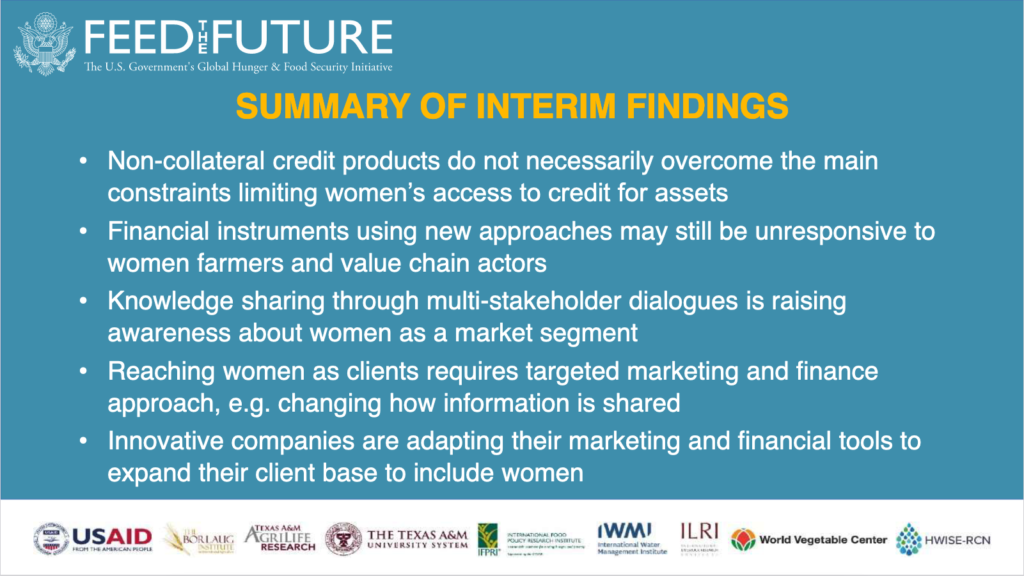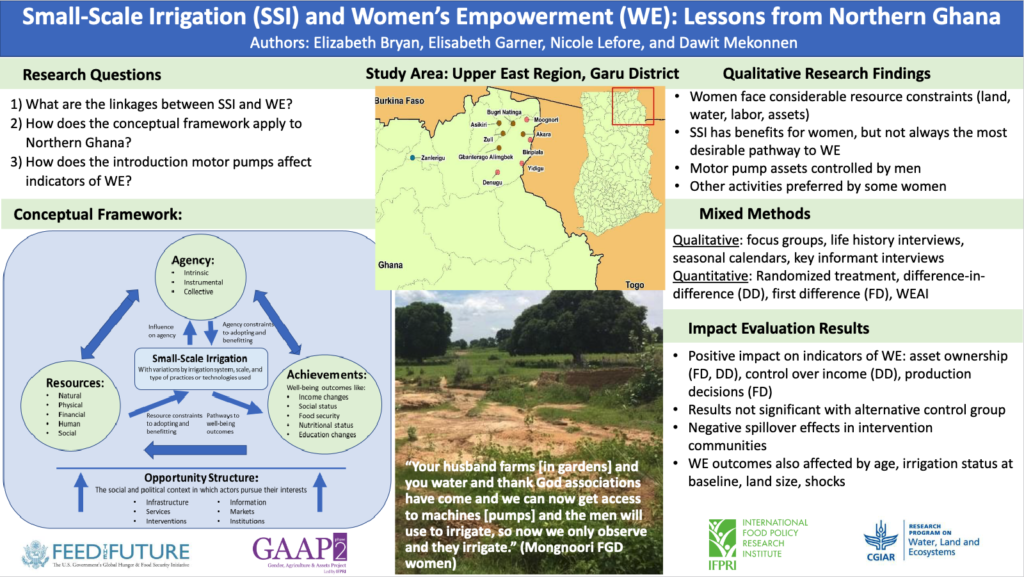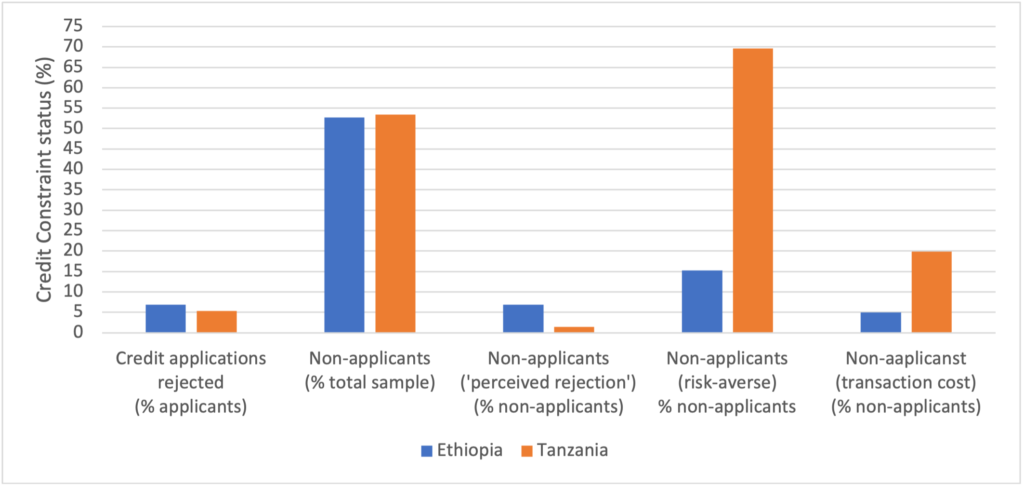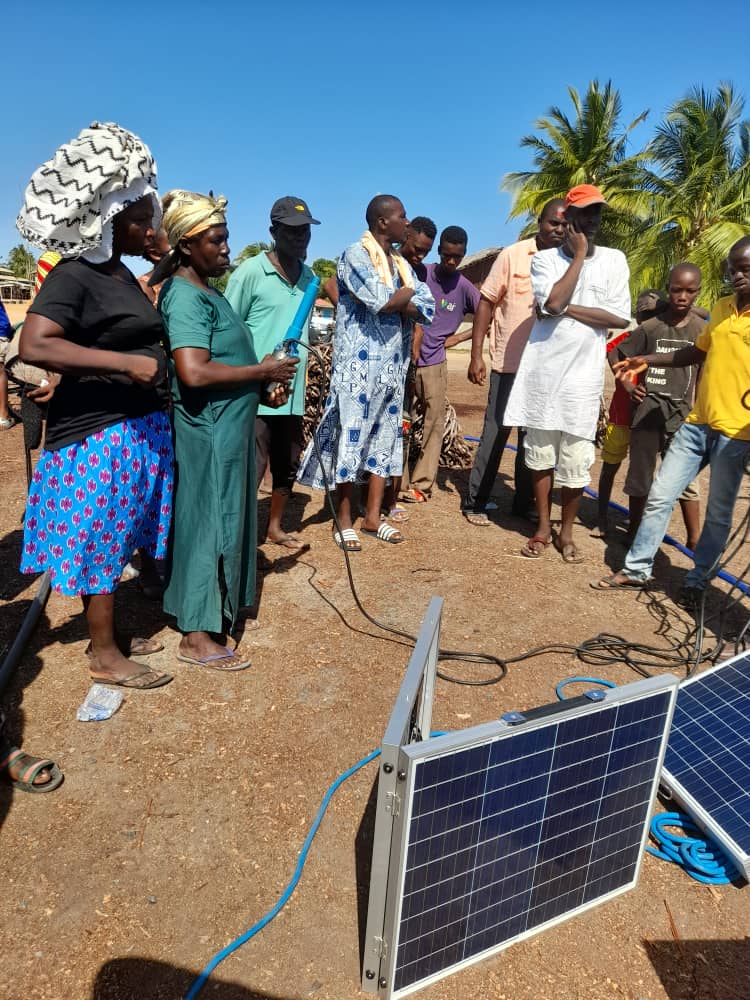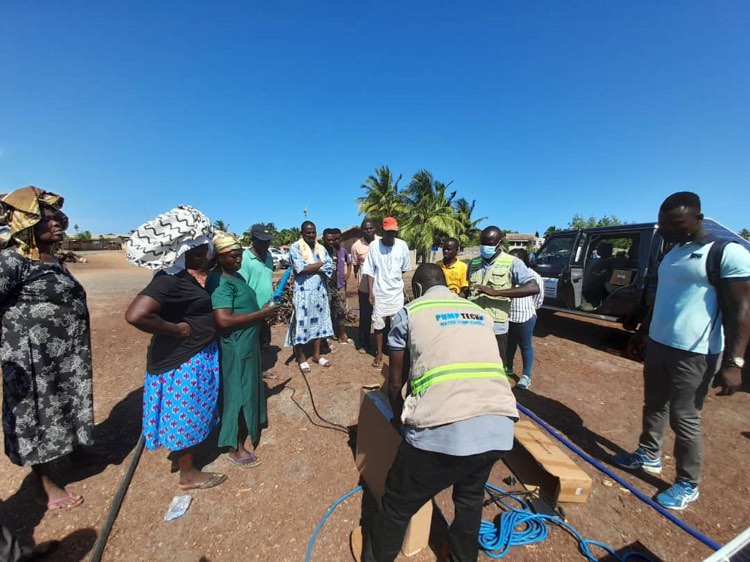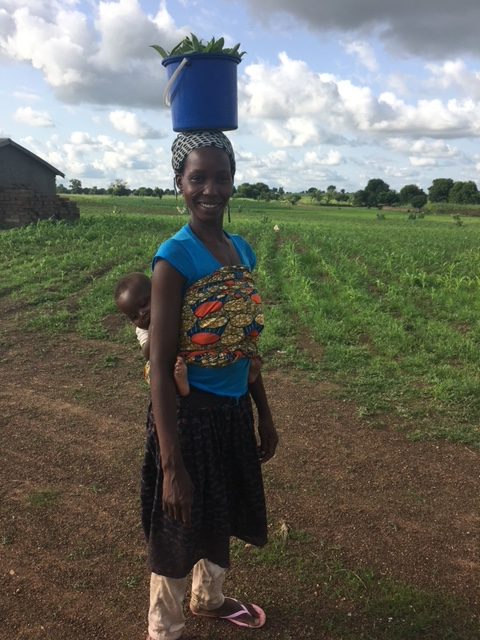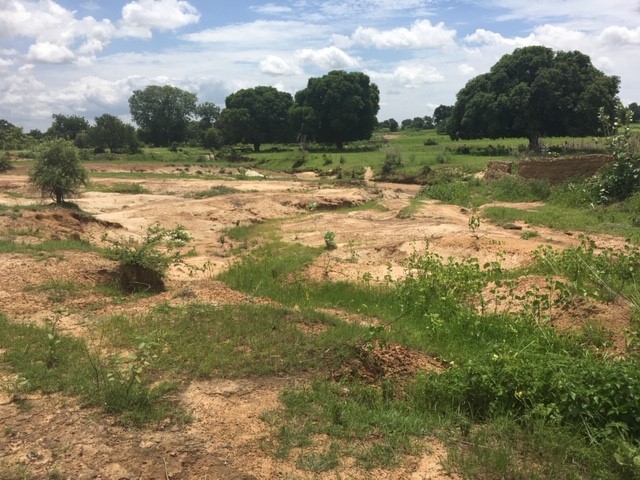Meet Dayan Yenesew, a 2022 graduating class student in software engineering at Bahir Dar University in Ethiopia.
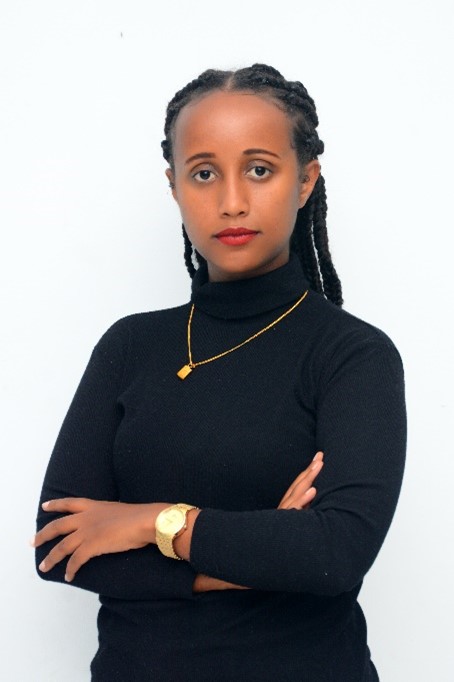
Tell us about yourself, your current role and your university.
I enjoy mentoring my juniors and educating young people on how to program. I also volunteer in communities around my university, including Women Tech Maker Bahir Dar, Google Developer Group Bahir Dar, and the Developer Student Club. My ultimate goal in life is to become a strong role model for young females by excelling in both academia and industry – paving the way for more women to enter the technology field.
What has the research process been like for you in the Seifu Maker Space at Bahir Dar University under the challenge supported by the Innovation Lab for Small Scale Irrigation?
There were many applicants for the Hack-a-Thon organized by IWMI under the ILSSI project, but only 6 teams with about 30 members passed the initial screening stage. We attended a three-day human-centered design (HCD) training and took a field trip to a farm to identify the challenges facing farmers. After the HCD course, we conducted research and selected a challenge that we felt connected to from the field trip. Following extended idea-generation, we presented our proposal along with the other six teams. My squad was one of the two winners.
I’ve been eager and passionate to work on a project that speaks to me personally. I witnessed how difficult it was for my rural cousins to purchase solar pumps and home systems because there were no trustworthy vendors. I have a relative who lost his savings after being duped by a vendor to buy a sub-par solar panel for an irrigation water pump. Even though I sleep less than five hours every night because of class work and a final year project, it has been an exciting trip for me to work on a project that I know will address a real person’s problem.
What challenges did you identify in your project and how will others benefit from your solution?
As part of our project, we are creating a digital and sales app for Rensys Engineering PLC. We identified difficulties after studying the company’s current system, and then came up with solutions that can benefit both farmers and the company.
Farmers will get direct access to the price list, which will enable them to purchase solar items at a reasonable price and not get duped by local vendors who provide false information and low quality products. Farmers will also more easily find the location and contact information of the regional agents, and information about solar products in voice format and in a native language. If needed, farmers can access toll-free call centers for assistance, which will help them easily reach Rensys for after-sales support and maintenance, which they lacked before.
Rensys as a business will benefit from our app by streamlining orders and distribution of solar pumps into a simple and easy process with local and regional sales agents, while reducing the workload with a system generates sales analytics reports. They will have more control over prices between regional and local sales agents; previously, local sales agents would increase the price beyond the official Rensys price and charge farmers extra. Rensys will also be able to manage inventory for management of regional agents and warehouses, and manage future orders and marketing with statistics on products most frequently purchased in regions, and stop selling unpopular or defective goods.
From what your experience so far, what is the most surprising or outstanding thing you have learned? How did it change your approach to learning?
The concept of human-centered design I have learned in the Seifu BiT Maker Space forever changed how I approach problems. I found it challenging at first, because I wasn’t adapted to this way of thinking. It was both a fantastic experience and difficult to put into practice. This experience taught me how flexible and adept I can be. As a team, we had to understand people’s problems through their eyes rather than our own subjectively. We did research and went on a field visit to identify challenges using human-centered design thinking. It was hard at first because our minds frequently reverted to the old way of thinking. Through perseverance and practice over the last three months, I have mastered this approach and applied it to my final year project, too.
We were also matched with a fantastic mentor by the Seifu BiT Maker Space. Being given the chance to follow their lead has significantly altered my career. I never thought having a mentor like them would allow me to advance as quickly as I did. They imparted their knowledge and experience, tracking our efforts and helping us identify our mistakes. I’m grateful that they have been so generous with their time and effort.
The last three months have been incredibly significant in my life. Seifu BiT Maker Space has opened so many doors for me. The people I met and the experiences I have had are unparalleled. The tight-knit relationships with staff and my peers are what I am going to miss most about the maker space. I regret not finding it sooner and will be forever indebted to the center. This project stands out from ordinary classes since it is applicable. By putting all the theoretical ideas I’ve learned over the previous five years to use, we tackled a real-world problem facing farmers and businesses. This project has allowed me to practice my leadership, teamwork, analytical, and problem-solving skills as well as demonstrate my capacity for multitasking and high-pressure situations. I am confident that this ability I have gained will be useful to me in my future profession.
Finally, what advice would you give other women in science, based on your experiences?
In high school, physics was one of my favorite classes, and I wanted to major in it. However, my family opposed this decision, believing it to be absurd. I also couldn’t identify a role model so I started to doubt myself, and experienced imposter syndrome. As a person, it is hard to imagine what you do not see. So I went to the software engineering department.
In university, I still struggle to find mentors and role models. Inspired by this experience, I started to develop a platform (website and mobile application) as my final year project, which aims to raise the aspiration of girls and to give girls role models that can expand their horizons. It will feature successful women in business, politics, science, engineering, mathematics – connecting girls to an interested high achieving university student through mentorship.
I strongly believe that by providing girls with environments that inspire them to be their best selves, encourage non-gender norms and expectations, and expose them to a variety of different areas such as science, technology, engineering, and math (STEM), we can make a difference.
I know being a woman in STEM is not always an easy route. I advise my fellow women in STEM to battle against the system, demand what they are entitled to, and alter the system for future generations of women.

